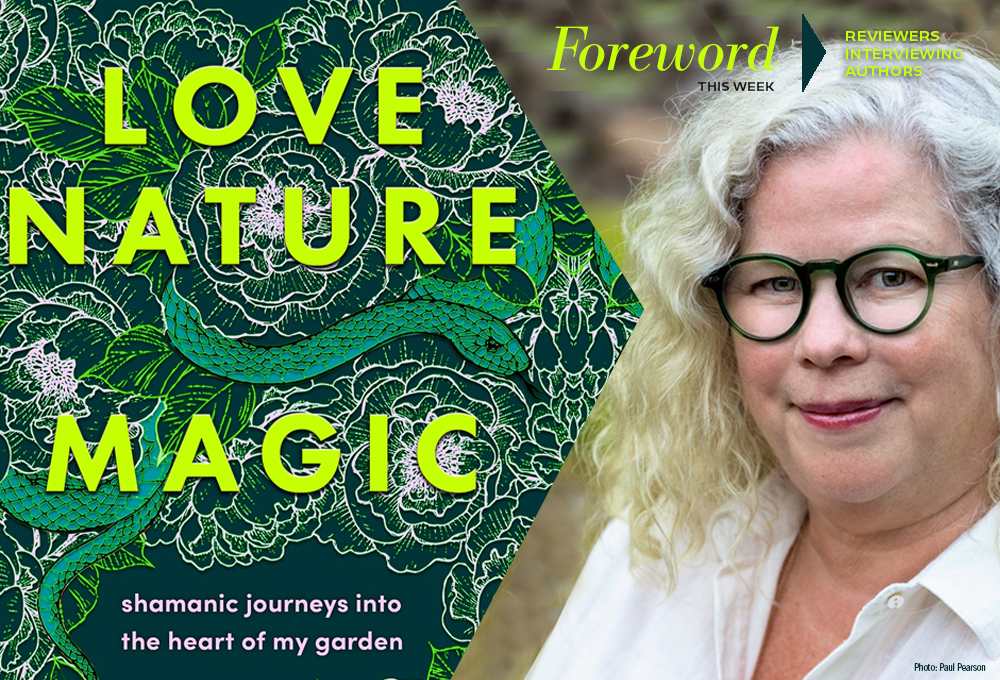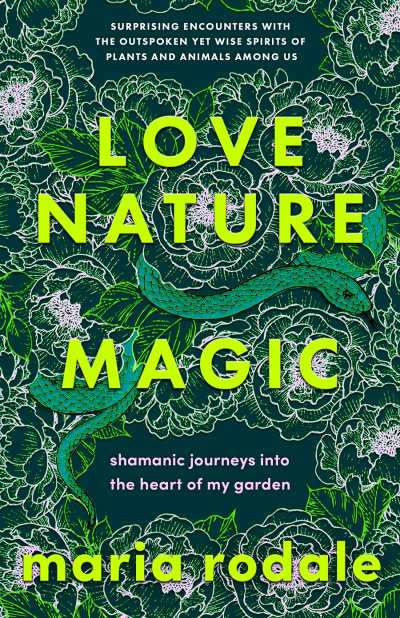It looks like you've stumbled upon a page meant to be read by our code instead of viewed directly. You're probably looking for this page.
Reviewer Carolina Ciucci Interviews Maria Rodale, Author of Love, Nature, Magic: Shamanic Journeys into the Heart of My Garden

The green thumbs among us know a few things about plants, knowledge-based in the solid science of botany as well as many years of trial and experimentation. But those master gardeners also realize that they have been gifted with an extra sense—plant sense—that allows them to understand things the rest of us don’t. Language doesn’t quite allow us to talk about exactly what’s happening between plant and planter, but the interaction may best be described as a type of communication.

Maria Rodale is one of those mystics of Mother Earth. The author of Love, Nature, Magic: Shamanic Journeys into the Heart of My Garden, Maria is well aware of the mystical things she experiences in her garden, and we were thrilled when she agreed to share some of her plant sense in a free-ranging conversation with Carolina Ciucci.
You refer to gardening as a creative collaboration with nature. Could you elaborate on this concept?
The great thing about nature is that it has a will and mind of its own and talks back. It lets us know what it likes and wants if we are willing to pay attention and listen. For example, I may plant things in certain areas and expect them to do well. But sometimes they don’t do well, and if I pay attention I notice they show up other places where they are happier. When I am picking weeds I often find baby Japanese Maple trees, for example. My project for this year is to transplant them into an area where I can create a nursery for them to grow. Then, when they are larger I can either transplant them or give them away. But I often let them grow where they are as well and they turn into beautiful additions to my landscape.
But this also applies to larger issues like climate change. The weather is talking back to us, telling it doesn’t like what’s happening to nature. And as Weather told me, it doesn’t care about people, really. Its job is to keep the earth healthy and alive.
Combining gardening and shamanic journeying makes it clear that the two have more in common than one might think. What would you say are lessons to be learned from both?
Pay attention. Listen. Nature is trying to communicate with us! Nature is love made visible. And good, true love is a relationship where everything and everyone feels seen, heard, and cared for. There are many gardens that are visually perfect, but not loved. Real love allows for some freedom and wildness.
“Perfect” gardens are like “perfect” families on social media. Visually they seem perfect and we can feel inadequate compared to them, but underneath there is often pain, trauma, and loneliness. Embrace your wildness and imperfections and you will discover more joy and more love.
An overarching lesson from these shamanic journeys seems to be empathy: we should be more empathetic and, so to speak, learn to put ourselves in others’ shoes, or roots. Would you suggest any methods to enhance empathy, besides gardening and shamanic journeys?
The best ways to discover empathy within yourself are simple ways: share a meal with someone and listen to their story and don’t judge them for it. Smile and assume positive intent from and to others, including strangers. Be generous. Learn about history and other cultures. One of my favorite TV shows for this is “Finding Your Roots,” with Henry Louis Gates on PBS. History and families are much more complicated and diverse than we often believe.
Why do you think people are wont to misunderstand, and underestimate the value of, certain species?
So many people are afraid of things that they don’t understand or believe (sometimes correctly) could harm them. Take sharks, for instance. Yes, they are dangerous and can hurt people but far less than other humans can hurt people. But as apex predators, they are extremely necessary to keep ocean life in balance and healthy. Rather than believe we should kill those things we are afraid of, what I learned from journeying is that if we understand the value of everything, respect it, and make room for everyone to thrive, there will be much less danger to everyone. This goes for humans, too. Everything has a purpose. It’s up to us to get over our fears and learn how to respect and appreciate what that purpose is.
Looking back, does any of the journeys described resonate with you in particular?
Well, I love all my journeys and am incredibly grateful for everything I learned. But the ones that stick with me the most are the ones that made me laugh the most. Groundhog was hysterical and I laugh everyday remembering his visit to me. And Frank, who can forget Frank the rabbit? Everything is normal, and grab your pleasure where you can, are two good rules to live by.
Carolina Ciucci